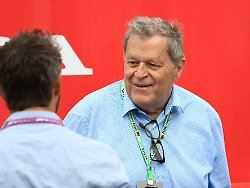Friday 4th June 2021
“Become an innovation driver”
Haug speaks Formula 1 into the climate conscience
Formula 1 is often referred to as yesterday. “Fuel slings” have fallen into disrepute too much. Innovations are being planned. Long-time Mercedes motorsport boss Norbert Haug demands that things have to go faster. Formula 1 could play a pioneering role.
Norbert Haug, head of Mercedes motorsport for many years, would like a faster introduction of sustainable fuels in Formula 1. “If we were to implement the use of synthetic e-fuels in motorsport more quickly today, I would much prefer that to all the sustainability commitments that are in the media everywhere be represented, “said the 68-year-old in an interview with” Auto Motor und Sport “.
“A Formula 1 World Championship, in which 20 cars with over 1000 hp high-performance engines each powered by climate-neutral fuel, is the best evidence that every common internal combustion engine can be operated in a climate-neutral manner and therefore not polluting the environment,” said Haug. Motorsport must “take on a pioneering role as quickly as possible and become a driver of innovation, ideally very effectively from the top, i.e. Formula 1.”
No competition to the electric car
The premier class has announced the introduction of e-fuels for 2025, because then a new engine formula will also take effect. In addition, Formula 1 wants to be climate-neutral on and off the track by 2030. In view of the huge logistics involved in the races, the cars are probably the least of the challenges.
The world association FIA has already developed a synthetic prototype and distributed it to the engine manufacturers in order to gain knowledge. The classic e-fuels, obtained from hydrogen and carbon dioxide, are not yet suitable for motorsport due to their low octane number. The FIA therefore works with biological waste.
Haug, however, does not want his statements to be understood as an attack on the electric car, it is a multi-pronged strategy. “More than 1.3 billion existing vehicles around the world could be operated with synthetic fuels, biogas and biofuels in a climate-neutral way,” said Haug: “Battery-electric vehicles alone will not achieve the goals set for individual transport for the climate change.”
The problem is not the internal combustion engine, “but what comes out of the back. And if this fuel is climate-neutral over a wide area, it will help the climate change in the internal combustion engine just as widely.”
.
